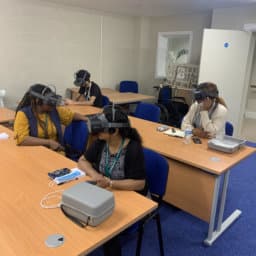Earlier this year, on the 15th January, the independent review of children’s social care was announced, with a focus on ensuring every child, no matter their background or the circumstances in which they grow up, has the opportunity to fulfil their potential.
Following the announcement, Daniel Croft, CEO of FosterTalk and Martin James Foundation, Abby Cooke, VR Service Manager at Antser and Alison Alexander, Group Chief Operating Officer of the Martin James Network, sat down to discuss some of the topics explored in the care review, focusing on two main questions: “How can we provide children with stability?” and “How can we support families to stay safely together?”
The issues facing children, young people and families in need have grown and changed over the years, especially during this past year in the face of the challenges proposed by the Covid-19 pandemic. In order to bring about positive change, we must understand what it is like to walk in the footsteps of those who need our help and support and find innovative ways to overcome barriers in order to bring about positive change.
As practitioners, we must be the ones to change the conversation. At Antser, we are dedicated to ensuring better outcomes for children and young people, and by taking back control of the narrative, we can help provide the stability and support needed for families to flourish.
Taking a snapshot of the current support out there for adoptive and foster parents versus that for birth families brought to light the realisation of the stark difference in care. For many birth parents looking for information surrounding care, there is a wealth of negative terminology, inturn causing a barrier for support.
Daniel Croft shared his thoughts:
“I think for birth families there is an expectation to know these life skills and have these qualities to be a parent. We can’t take that expectation away in fostering and adoption because we say ‘okay, you’re going to have to do this preparation training regardless of your experience’. That of course doesn’t work in the real world because there are no qualifications to be a parent, but that doesn’t mean we can’t bridge that gap somehow.
“By looking at what works in fostering and what works in adoption in terms of support, we could somehow mirror that for birth families, even if it is by using online resources.”
Abby Cooke added:
“It makes you wonder, if you are struggling, are there already barriers to accessing support because of how things are worded? For example, just by searching for ‘early support’, it is worded as ‘early help’. It is not easy for birth parents seeking advice.”
For many adoptive and foster parents, training is a basic necessity to their daily lives. Over the years we, as an industry, have almost given permission to adopters and foster carers to not know everything, whereas this is not the case for birth parents.
Looking ahead to the future, one way we can overcome this is by providing training. Simply by helping new or young parents understand the range of support available can greatly maximise the chances of a stable and healthy family.
Dan continued: “Even a basic first aid course for everyone that’s planning to have a child would save children’s lives over the years. One of the main ongoing issues is how you deliver that support for people who don’t necessarily know that they need support.”
One of the most important skills to possess in our line of work is the ability to empathise with others. Using empathy is one of the only ways we can eliminate this ‘shame’ element for those looking for advice and to finally break that cycle.
Alison Alexander said:
“We need to be the ones that open the doors. By showing those in need that we as experts are empathising with them and then empowering them enough to know it is okay to ask questions when they need our support will make all the difference.
“If we can help achieve an environment that allows people to feel okay and comfortable enough to come and ask us for help, we are more likely to be able to keep families together and provide a stable life for children.”
The future is now. Moving forward, we need to begin changing the conversation, keep children and families together and enable children to thrive.


